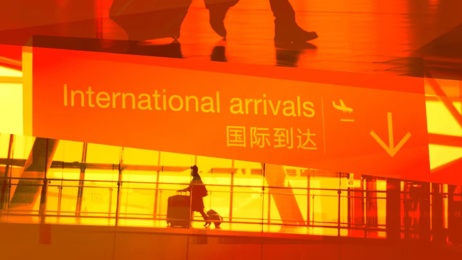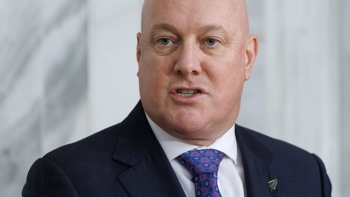As far as election-year curtainraisers go, they don’t come much more dramatic than PM Jacinda Ardern’s shock decision to resign.
It left the rest of the Labour caucus shell-shocked – and needing to find a replacement for somebody most of them thought was irreplaceable in an election year.
Ardern’s bombshell was followed by a second bombshell when her natural successor, deputy Prime Minister Grant Robertson, also ruled out putting up his hand to take her place.
Of the MPs, only Ardern’s tight inner circle were told before yesterday’s announcement - including Grant Robertson and Megan Woods - the campaign chairwoman – as well as her senior advisers chief of staff Raj Nahna and chief press secretary Andrew Campbell.
Most of Cabinet were told yesterday morning and the rest of caucus were told soon after, just before her public announcement.
MPs leaving the caucus room after being told of the decision admitted they were shocked, and some, including Justice Minister Kiri Allan, were clearly emotional.
Labour MPs do not have long to digest the news: they will spend the next two days considering the options ahead of a caucus vote to elect a new leader - and a new Prime Minister - on Sunday.
The frontrunner is likely to be Chris Hipkins, one of the most high-profile of the front bench.
However, Michael Wood will also be assessing his options and has not ruled it out.
Some will see following in the footsteps of Ardern, especially at a time the party is struggling in the polls, as a bit of poisoned chalice. However, it could also be a chance for someone else to do the clearing of the slate of unpopular reforms that Ardern had been urged to do.
- 'Remarkable leader' or 'hypocrite'? Kiwis react to Ardern's shock resignation
- Watch: Tearful Jacinda Ardern steps down as PM - 'I no longer have the energy'; Robertson won’t stand
- Jason Walls: No-one expected Jacinda Ardern to resign here and now
Willie Jackson said the Maori caucus would meet to decide whether to put up a candidate soon.
He said he was unlikely to try himself – other names as possibilities included Kiri Allan, Nanaia Mahuta and Kelvin Davis. The Maori caucus is likely to at least expect a deputy position.
MPs have agreed not to rule themselves in or out ahead of the meeting to try to keep the contest quiet.
Labour’s wiser heads who have been through previous leadership changes are hoping only one obvious candidate comes up - Hipkins himself said he hoped a consensus option would be agreed on and he would support whoever that was.
If it is contested and no candidate gets the support of more than two-thirds of caucus, the decision goes to Labour’s leadership process - a long-winded exercise that gives the party members and affiliates a vote as well as MPs.
Then will come the job of trying to win the election. Ardern had planned a reshuffle and a stocktake of the party’s current reforms. Those jobs will be left to the new leader now.
Despite Ardern and Woods’ bravado about the party being in a strong place to win a third term with or without her, her resignation is far from the start they would have hoped for.
It was already going to be a hard election year for Labour - and Ardern and Robertson’s decisions have made it even harder.
Ardern remains the party’s biggest asset with Robertson a close second.
Media had turned up at the party’s caucus retreat expecting either a reshuffle or an election date.
Ardern announced the election would be on October 14. She then announced she had reshuffled herself out of the Prime Minister’s job.
The realisation that it was about to happen started to kick in as soon as she said she had been giving some thought to her own future.
Ardern said there was no scandal behind her resignation: she simply did not have enough left in her to keep going.
She described the role of PM as being a privilege – but also challenging. And while she had hoped that the summer break would be enough to restore her, that had not happened.
And so she was going.
She downplayed the impact that the almost unrelenting vitriol, abuse, protests and security threats had on her decision, but alluded to it when she said she was only human.
Two terms is not usually a long time for a Prime Minister: Sir John Key stood down while still popular in the middle of his third term, surprising everybody. Bill English’s strong election result as his successor could give Ardern’s replacement some faith that it can be done: English delivered an election result on a par with Key’s.
When Ardern became leader in 2017, just a few months before the election, the response to her from the Labour faithful and then the public was described as Jacinda-mania.
Her first speech as leader was to a massive throng of Labour faithful in the Auckland Town Hall. It was loud and rapturous, her MPs flooded onto the stage after.
Her last speech as leader was to the media in a bland conference centre in Napier. No other MPs were in the room: just her partner Clarke Gayford, who sat right at the front.
Ardern began to make the announcement, choking up at first. She spoke of her reasons: among them her family. Neve was about to turn 5, and Ardern said she would now be able to be there to take her to school.
Her family might not be the reason she is quitting, but it was clearly a very silver lining.
At that point Neve had not been told: Ardern quipped that 4-year-olds were chatty - she couldn’t trust Neve not to leak.
But Labour has lost someone who was one of its most extraordinary leaders. Ardern’s decision was a result of the toll of what she had dealt with. Ardern tried to focus on the policies she was proudest of, reeling off a list while the media sat stunned at the words that had come before that list.
But catastrophe after catastrophe rather than policies or Labour’s reforms defined her tenure and will be her legacy. The mosque shootings. White Island. Covid-19 took the biggest toll – it made her, and then broke her.
Covid-19 secured her a majority government only two years earlier.
But the backlash to the restrictions had then led to her popularity plummeting.
After her announcement, the protesters who had become a regular fixture of Ardern’s travels started to turn up at the Napier War Memorial Centre. They had not lost any tears over it.
Down the road, National’s caucus was also meeting. Its leader Christopher Luxon had just delivered the reshuffle of the team he hoped would win the election, delivered a ra-ra the troops message and the four focus areas National would be pushing at. The cost of living was top of the list.
An hour later, Ardern had delivered a much bigger boost to his chances that any four-point plan.
Take your Radio, Podcasts and Music with you









